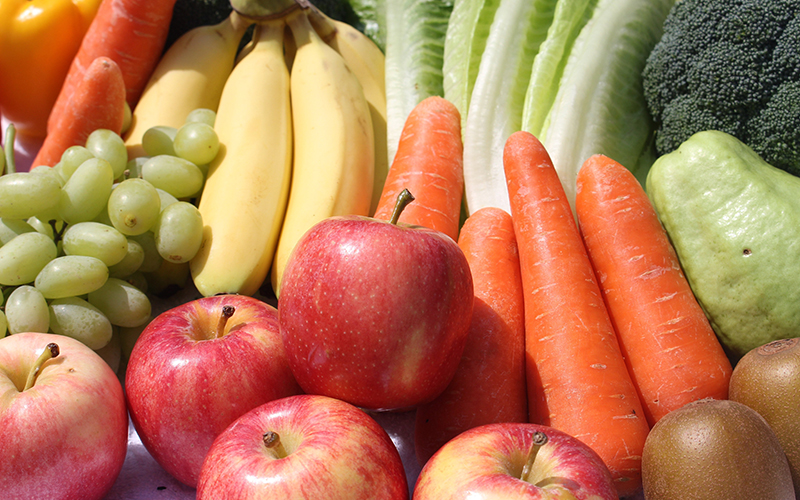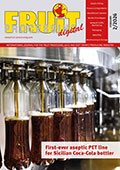Reversing the European health crisis with fresh fruit and vegetables: a radical change of policy mindest is needed to tackle societal and health concerns with the fresh produce power
The release of the latest EAT-Lancet report on “healthy, sustainable and just food systems” is well aligned with the repeated calls of Fresfhel Europe to have a drastic shift …

The release of the latest EAT-Lancet report on “healthy, sustainable and just food systems” is well aligned with the repeated calls of Fresfhel Europe to have a drastic shift in policies influencing food systems. An holistic review of agriculture, fiscal, health, environmental and education policies in the European Union is urgently needed. While the level of fruit and vegetables consumption remains way too low compared to health and sustainability recommendations, the current food policy environment continues reinforcing the position of ultra-processed food. This has far-reaching implications such as the downfall of European citizen’s health and an environmental footprint for agriculture and food incompatible with the EU climate ambition.
The release of the EAT-Lancet Report is closely aligned with Freshfel Europe’s persistent calls for a drastic shift in policies governing our food systems. A holistic review of agricultural, fiscal, health, environmental and education policies is urgently needed, positioning fruit and vegetables as key partners to the much-needed solutions to rising societal challenges.
Currently, levels of fruit and vegetable consumption remain far too low compared to health and sustainability recommendations. Meanwhile the prevailing food policy environment continues to reinforce the dominance of ultra-processed foods, contributing to a collapse in public health and leading an high environmental footprint incompatible of food with the EU’s climate ambitions. In contrast, the fresh fruit and vegetables sector has a much better use of natural ressources such as water , a low carbon emissions and also importantly an unique carbon sequestration capacity to secure Europe carbon neutrality.
Europe is at a turning point. Obesity rates are soaring, diet-related noncommunicable diseases (NCDs) dominate mortality statistics, and healthcare systems are buckling under unsustainable costs. Europeans are eating too few fruits and vegetables which are nature’s most effective and affordable “medicine,” with demonstrably strong health benefits next to one of the lowest environmental impacts among all food groups. Freshfel Europe has long warned policymakers of this imbalance, but necessary actions to be taken lagged behind political ambition. To meet both climate and health targets, the European Union must accelerate its transition to a more plant friendly diet with fruit and vegetables at its core. A positive discrimination towards fruit and vegetables is key to reverse the long lasting consequences of previous policies.
Philippe Binard, Freshfel Europe’s General Delegate commented: “ The EAT-Lancet Report on Healthy, Sustainable and Just Food Systems delivers a clear and urgent signal from the scientific community and fully match the year long narrative carried by Freshfel Europe” . As a result of this report, the European Union and nations worldwide must act without delay to realign food policies with health, environmental, and economic sustainable goals. He added: “The EU cannot afford ignoring the power of fruit and vegetables. They are the foundation of healthier citizens, healthier planet, and a competitive rural economy. A holistic review of agricultural, fiscal, health environmental and education policies is urgently needed. The current policy framework has fostered an deep imbalance with production growth destined to the food industry conflicting with the need of supply of healthy agriculture products needed according to health & nutritional guidelines.”
The average consumption of fresh fruit and vegetables in the European Union falls well below minimum health or sustainability recommendations. While combined health and sustainability targets gravitate towards 800 g. of fruit and vegetables per capita per day, actual consumption hovers around 350 g. At the same time, over half of adults are now overweight, and nearly one in six is obese. Poor diets are directly linked to increases in cancer, cardiovascular diseases, diabetes, and other NCDs — which account for over 90
% of deaths in the EU.
The EU Platform for diet, physical activities and health based on industry commitment to remedy to rising obsesity was a blatant failure of a soft law approach at the star of the century. And yet, the most recent EU health strategies, including the Beating Cancer Plan, so far failed to fully acknowledge and voice the preventive and protective role of fruit and vegetables. Simultaneously, EU agricultural subsidies and fiscal policies remain misaligned, favoring ultra-processed food production and promotion over fresh, nutritious produce. Besides, in the EU, a robust nutritional education strategy is missing. Children throughout their school education should enjoy a nutrition curricula highlightingthe benefits of a healthy diet combined with physical activities. Those two pillars were already clearly advocated by the European Commission in 2019 as part of the “Tartu Declaration “, but regretfully felt short of concrete implementation.
Philippe Binard added: Fresh fruits and vegetables are Europe’s most underused resource in confronting today’s crises. Freshfel Europe continually underscores the “triple win” fresh produce can deliver: health gains through lower obesity and fewer NCDs; environmental gains as the food group with one of the lowest footprints; and economic gains by supporting rural economies and reducing hidden healthcare costs associated with poor diets”. Europe has pledged to build a sustainable, resilient, and competitive economy. He added: “This ambition and the effective, thrifty use of public funding remains out of reach unless EU and national policymakers place fruit and vegetables at the center of food, health, and agricultural policies. The support for agriculture production should be better aligned with nutritional and dietary guidelines. This is not the case for the moment”. The cost of inaction and lack of shift is disastrous: for people, for the planet, and for Europe’s prosperity.
On behalf of the entire fresh produce sector, Freshfel Europe continues to call again and again for an urgent, coherent action plan by the European Commision with a policy shift placing fresh fruit and vegetables at the heart of a sustainable food system. Every measure in agriculture, fiscality, health, education, or the environment (such as packaging) should undergo an impact assessment to ensure the alignment of production incentives with health and sustainability goals. This will steer consumers toward affordable, healthy, and appealing food choices, with fruit and vegetables as a truly natural and preventive “medicine” for citizen’s health, without reliance on addictive elements.
The time to act is now. Europe cannot build a sustainable future on an unsustainable diet. Can the European Commission and EU Member States be up to the challenge?








